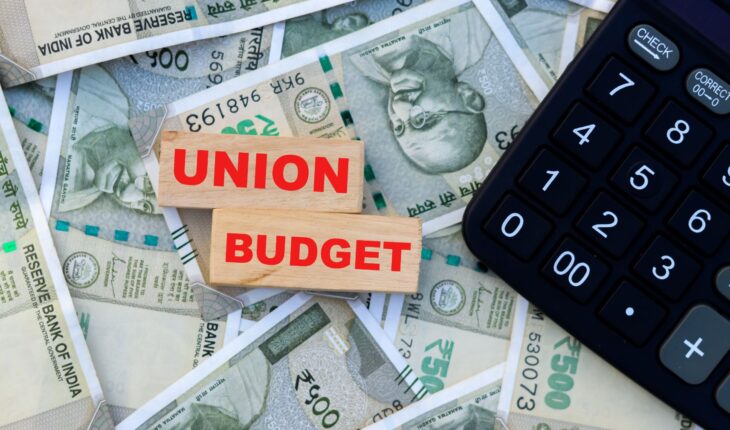
On February 1, Hon’ble Finance Minister Nirmala Sitharaman will present the 5th UnionBudget of her tenure. This will be the last full budget of the Modi government before the 2024 General Elections. Since next year General Elections are to be held, therefore, common people, elders, businessmen and corporates are all expecting relief in the budget, but I think the government will refrain from presenting a populist budget, because opposition parties are weak and perhaps all the opposition parties together will not be able to defeat the BJP in the General Election. BJP knows this fact; therefore, it will not present a populist budget just to win elections. The government would like balanced budget to be presented, so that the speed of development remains intact, and the common man does not face any problem.
Farmers expect that farming should be made farmer-friendly, so that their economic life becomes easier, and their next generation is motivated to do farming. Due to continuous high level of inflation, the life of the common man has become difficult. Therefore, they want the government to announce measures to reduce inflation in the budget. Incidentally, retail inflation has reduced to a one-year low of 5.72 percent in the month of December 2022.
In the past years, the average age of human beings has increased, due to which elderly lifestyle has changed. To lead a dignified life, they want an increase in old age pension, relief in income tax, Goods and Services Tax (GST) on products used by the elderly like diapers, medicines, healthcare equipment like wheelchairs and walkers Relief should be given. Mediclaim policies should be made reasonable & attractive and medical consultation fees should also be reduced. The elderly also wants that the interest rate on bank, post office, other investment schemes should be increased.
The middle class wants that the GST rate should be cut on everyday items& income tax rate should also be reduced reasonably. At the same time, businessmen and corporates want to get rid of red tapes in business and get tax exemption. In such a situation, it is bound to arise the question whether the government is capable of meeting everyone’s expectations? To live up to everyone’s expectations, the government should have good source of revenue incessantly, which is available or not it should be substantiated. Along with this, the government should also evaluate the economic challenges which it has.
There has been a steady increase in GST collection for a few months. The GST in the month of September stood at Rs 1.48 lakh crore, whereas in the month of October it had crossed the mark of Rs 1.50 lakh crore. The GST collection in the month of November also stood at Rs 1.46 lakh crore, while it stood at Rs 1.50 lakh crore in the month of December. This is the 10th consecutive month when the GST collection has been more than Rs 1.40 lakh crore.
Gross personal income tax collection reached Rs 8.77 lakh crore for the month of November, while gross corporate tax collection till November 10 stood at Rs 10.54 lakh crore, a growth of 30.69 per cent over the same period last year. According to an estimate, in the current financial year, the government can achieve the budgeted target of direct and indirect revenue collection, but the government will not be able to achieve the disinvestment target, because now only 2 months are left, but till now, the government has not got noteworthy success in the matter.
According to an estimate, the government can achieve the target of keeping the fiscal deficit at the level of 6.4 per cent in the current financial year and may be able to reduce it by 0.50 per cent in the next financial year, as the revenue collection in the current financial year will still increase. Fiscal deficit is the difference between total income and total expenditure and when the government spends more than the income, it has to borrow from the market to bridge the deficit or reduce it.
The position of revenue collection is better in the current financial year, but in the current atmosphere, like other countries of the world, India is also grappling with inflation, sluggishness in economic activities, geo-political tensions, and the ill-effects of the Corona pandemic. Many countries of the world are on the verge of getting trapped in the trap of recession. Although, according to the available indicators, India will be saved from the ill effects of recession, but to maintain the current status quo, India will have to continue its developmental work.
To ensure fiscal strength, the government will have to spend prudently, increase capital expenditure, ramp up manufacturing activities, focus on other developmental works and materialize welfare works to ensure growth and win the General Election. Right now, there are some economic difficulties in front of the government, but due to the increase in revenue collection, the government can work on both developmental and welfare fronts in the coming financial year along with increasing the capital expenditure.
For boosting the pace of revenue, after the general budget, the government may increase the GST rate of many items. To maintain the current pace of revenue collection, such a step is also necessary to be taken by the government. According to an estimate, in this sequence, the GST rate can be increased on private jets, helicopters, expensive electronic equipment, plastic goods, jewellery, high-gloss paper and vitamins etc.
The government also wants to reduce the import of such items, which will reduce the import bill and strengthen the concept of “Make in India”. In this connection, custom duty can be increased in the budget on some items. By this initiative, there will be two benefits, firstly, the current account deficit of the country will come down and secondly, the “Make in India” plan of the government will be strengthened.
On many parameters of the economy, the country has reached the stage before the Corona period, despite this, due to rising inflation, geopolitical tension at the global level, it is necessary for the government to present a balanced budget. It means, the government spending on welfare works, but refrain from freebies and promote developmental works.
Therefore, in the budget to be presented on February 1, the government will focus on road construction and repair to strengthen infrastructure, strengthen rail connectivity&take initiative to further improve the business environment to improve employment opportunitiesin the country. The Hon’ble Finance Minister may announce to strengthen education and health infrastructure in the rural regions. The government will refrain from cutting fertilizer subsidy in the budget and may announce measures to make agriculture more appropriate and simpler. The Hon’ble Finance Minister can also announce relief to the middle class and the elderly. Since, there is not much tension with the neighbouring countries, therefore, the Hon’ble Finance Minister can refrain from increasing the defence expenditure.
Satish Singh, Mumbai AGM with a leading bank , views are personal




